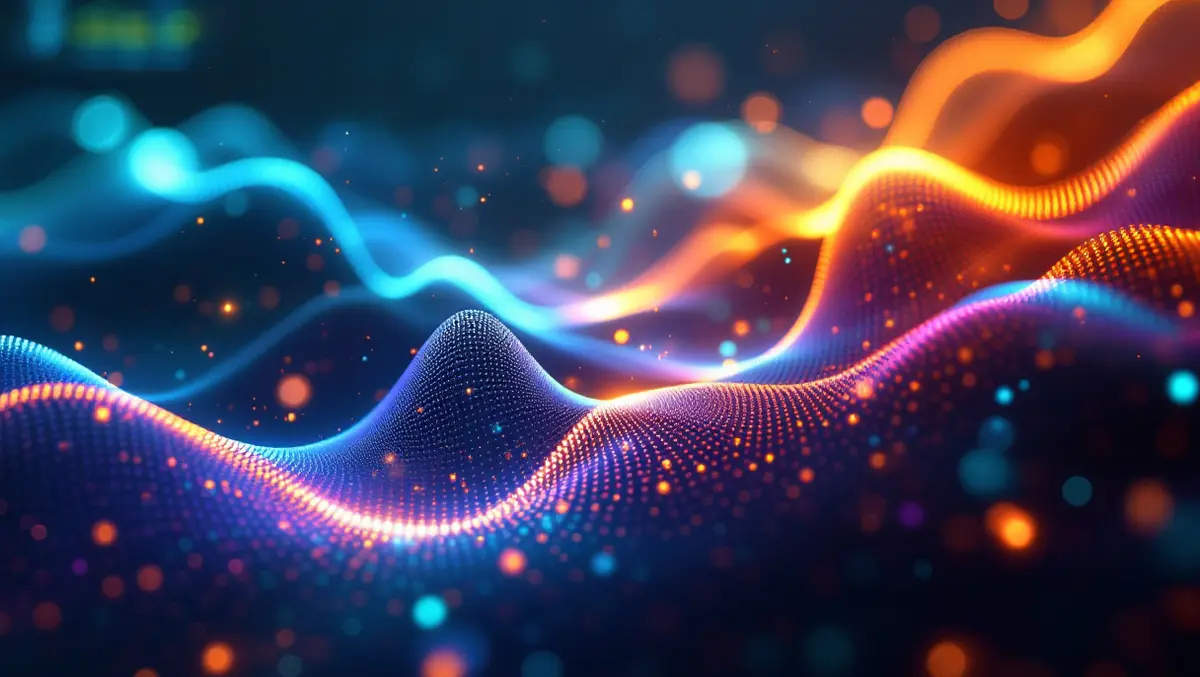
London firm unveils first quantum-AI generated music track
A London-based technology company has released what it claims is the world's first commercially available music track created using quantum-powered generative AI in collaboration with an electronic artist.
The track, titled "RECURSE", is the outcome of a project between Moth, a technology company, and electronic artist ILĀ. The track is available on major streaming platforms and is accompanied by a 24/7 interactive stream, called "RECURSE [infinite mix]", which generates and evolves music in real-time.
Moth's proprietary platform, Archaeo, serves as the engine behind the project. The platform is designed to combine generative AI capabilities with quantum machine learning advances. Unlike many traditional AI systems in creative fields, Archaeo is built to learn from small, artist-specific inputs rather than scraping large online datasets. This allows the system to support creative output while preserving originality and authorship of participating artists.
Moth states that this model supports an artist's creative vision and ensures creative integrity. The company emphasises its dedication to developing technology that respects ownership and originality, proposing an alternative to generative AI tools that rely on extensive data scraping or content mining.
"This is a defining moment - not just for MOTH, but for the future of creativity itself. RECURSE demonstrates the power of quantum AI to support and enhance, and not just take from, artists. It's a blueprint for a new kind of creative technology - one that's driven by imagination, rooted in ethics and designed to serve artists, not replace them. With Archaeo, we've supercharged generative AI by plugging a quantum capability into the engine room, empowering artists like ILĀ to break new creative boundaries in ways never before possible," Dr Ilana Wisby, Chief Executive Officer of Moth, said.
The process behind RECURSE involved ILĀ providing original audio material to train a bespoke AI model within their existing music production environment, specifically via a plugin for Ableton. The AI was used to generate musical ideas in the form of MIDI sequences for different instrumental elements, such as bass, synthesiser, and drums. ILĀ maintained creative decision-making regarding the sounds, effects, and overall arrangement. Once these creative decisions were finalised, the sequences were further shaped using quantum hardware supplied by IQM Quantum Computers.
"Working with MOTH's technology was a fascinating experience and has helped me create something genuinely new, which feels like it's pushing boundaries. This is a big step away from standard AI tools which generate the average of averages and are creating a kind of ubiquity in sound and music. It feels very refreshing to use a technology that has been built to work with you - not simply replace you. This approach produces something much more human-led led which feels more authentic in creative terms," ILĀ said, discussing the creative collaboration.
The Archaeo system is built on an architecture known as Quantum Reservoir Computing (QRC). Moth developed this approach with advisor Professor Eduardo Miranda. According to the company, QRC enables the detection and replication of subtle musical patterns, providing new dimensions to computer-generated music.
At each stage, Archaeo's design emphasises the importance of creative control, stating that its process allows for a more collaborative dynamic between artist and machine than that offered by traditional AI models.
Moth's ambitions, however, extend beyond music production. The company believes the Archaeo platform could be applied across various sectors, including immersive gaming, digital media, art, and broader content creation.
"This project is a demonstration of how quantum computing can enhance everyday tools and workflows. We're not just building tech for tech's sake, we're building tools that empower, inspire, and drive a new era of media and creativity," Dr Wisby added.
Moth describes this launch as an introduction of quantum technology to general consumers, contrasting the usual application of quantum developments in industries such as pharmaceuticals, finance, or cybersecurity. The company claims this project illustrates quantum computing's practical utility for artists and other creators.
The RECURSE project has involved collaboration with IQM Quantum Computers, which provided the quantum hardware for aspects of the workflow. IQM develops superconducting quantum computers and supplies both on-premises and cloud-access hardware to a worldwide customer base, mainly in academic and high-performance computing sectors.
ILĀ, who has a background in electronic music production, creative direction and interdisciplinary art, has previously worked with a range of artists and organisations, including Alt-J, Imogen Heap, U2, and the London Contemporary Voices choir. Their prior projects have spanned contributions to award-winning music, academic research, and multimedia productions, as well as involvement with advisory boards and music councils.
The launch of RECURSE represents the application of quantum machine learning within the generative AI music workflow, and marks the debut of what Moth describes as Quantum Computer Music, with plans for further developments in multimedia creative tools.


